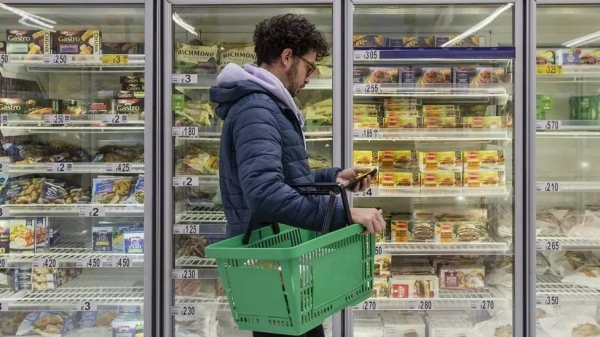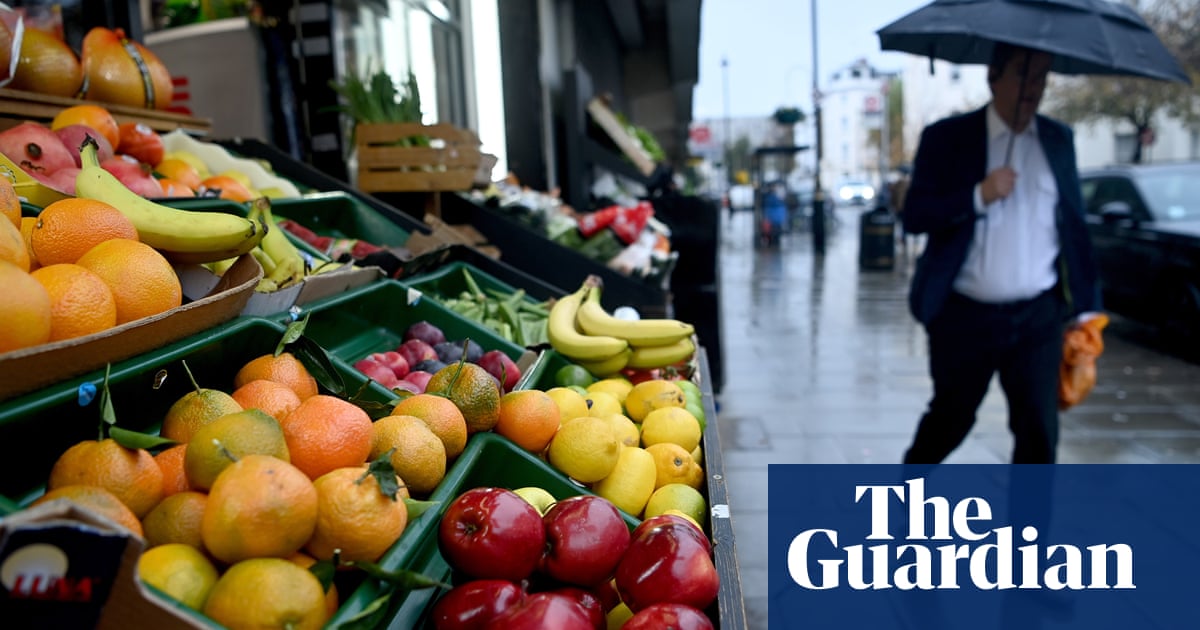
The UK economy will shrink and perform worse than other advanced economies as the cost of living continues to hit households, the International Monetary Fund (IMF) has said.
The IMF said the economy will contract by 0.6% in 2023, rather than grow slightly as previously predicted.
However, the IMF also said that after the Autumn Statement it thinks the UK economy is now "on the right track".
Chancellor Jeremy Hunt said the UK outperformed many forecasts last year.
In its World Economic Outlook update, the IMF, which works to stabilize economic growth, said the UK"s Gross Domestic Product (GDP) would shrink rather than grow by 0.3% this year.
It predicted the UK would be the only country - across the world"s advanced and emerging economies - to suffer a year of declining GDP.
The IMF said its new forecast reflected the UK"s high energy prices and financial conditions, such as high inflation.
IMF Chief Economist Pierre-Olivier Gourinchas told the BBC that for 2022, the UK had had "fairly robust" growth at 4.1%, which he said was "one of the strongest growth numbers in Europe".
"But it is true that we are forecasting a sharp slowdown in 2023, with growth that would turn even negative for the year."
He said the revision reflected the "fact that we have a very challenging environment in the United Kingdom", which he said was caused by high energy prices as well as "high dependence on liquid natural gas".
"As a response to this high inflation there is a tightening of monetary policy by the Bank of England and in the UK this feeds quickly into mortgages, because a lot of mortgages are adjustable rates," he said.
"So a lot of homeowners with mortgages are seeing an increase in their mortgage payments."
Gourinchas also said a factor in the UK"s forecast was that employment was still below pre-pandemic levels.
He said the plans outlined by the Treasury in the months since the Autumn Statement showed the UK was "certainly trying to carefully navigate these different challenges and we think that they are on the right track".
However, the IMF said in 2024 it expected UK growth to be 0.9%, up from 0.6% previously.
GDP is a measure for looking at how well, or badly, an economy is doing and in a growing economy, each quarterly GDP will be slightly bigger than the quarter before.
If a country"s GDP falls for two quarters in a row, it means it is in recession and it is a sign that its economy is doing badly. Typically when a country is in recession, companies make less money and the number of people unemployed rises.
The IMF"s bleak picture for the UK comes after Hunt warned it was "unlikely" that there would be room for any "significant" tax cuts in the Spring Budget.
The chancellor, who has been under pressure from some in his party to cut taxes to stimulate the economy, said that a pledge to halve the rate of inflation "is the best tax cut right now".
Inflation, which is the rate at which prices rise, hit 10.5% in the 12 months to December, close to a 40-year high.
Prime Minister Rishi Sunak has pledged to halve inflation by the end of the year, although some economists have said price rises will slow without government policies, due to commodity prices and shipping costs decreasing.
Andrew Bailey, the governor of the Bank of England, said inflation is likely to fall rapidly this year as energy prices fall, but has warned a UK recession is still on the cards.
While the IMF has predicted the UK economy to contract, it forecast economic growth of 1.4% in the United States, 0.1% in Germany, 0.7% in France, 0.6% in Italy, 1.8% in Japan and 1.5% in Canada.
Hunt highlighted that Mr Bailey had said that any UK recession was "likely to be shallower than previously predicted", but did add the IMF"s figures "confirm we are not immune to the pressures hitting nearly all advanced economies".
"Short-term challenges should not obscure our long-term prospects - the UK outperformed many forecasts last year, and if we stick to our plan to halve inflation, the UK is still predicted to grow faster than Germany and Japan over the coming years," he added.
The Treasury said since 2010, the UK had grown faster than France, Japan and Italy and that since the EU referendum in 2016, it had grown at "about the same rate as Germany".
"Cumulative growth over the 2022-24 period is predicted to be higher than Germany and Japan, and at a similar rate to the US," a spokesman said.
Economic forecasters are not always 100% right when it comes to predicting the future. The IMF has said its forecasts for growth the following year in most advanced economies like the UK"s have more often than not been within about 1.5 percentage points of what actually happens.
The IMF did not mention Brexit in its report as a factor for the UK not performing as well as others. Today marks three years since the UK left the EU.
It said the rise in central banks across the world putting up interest rates to try to curb inflation and the war in Ukraine continued to "weigh on economic activity".
But it said China reopening its economy from Covid restrictions "paved the way for a faster-than-expected recovery" globally.
Overall, the IMF estimated global inflation passed its peak and will fall from 8.8% last year to 6.6% in 2023 and 4.3% in 2024. — BBC












